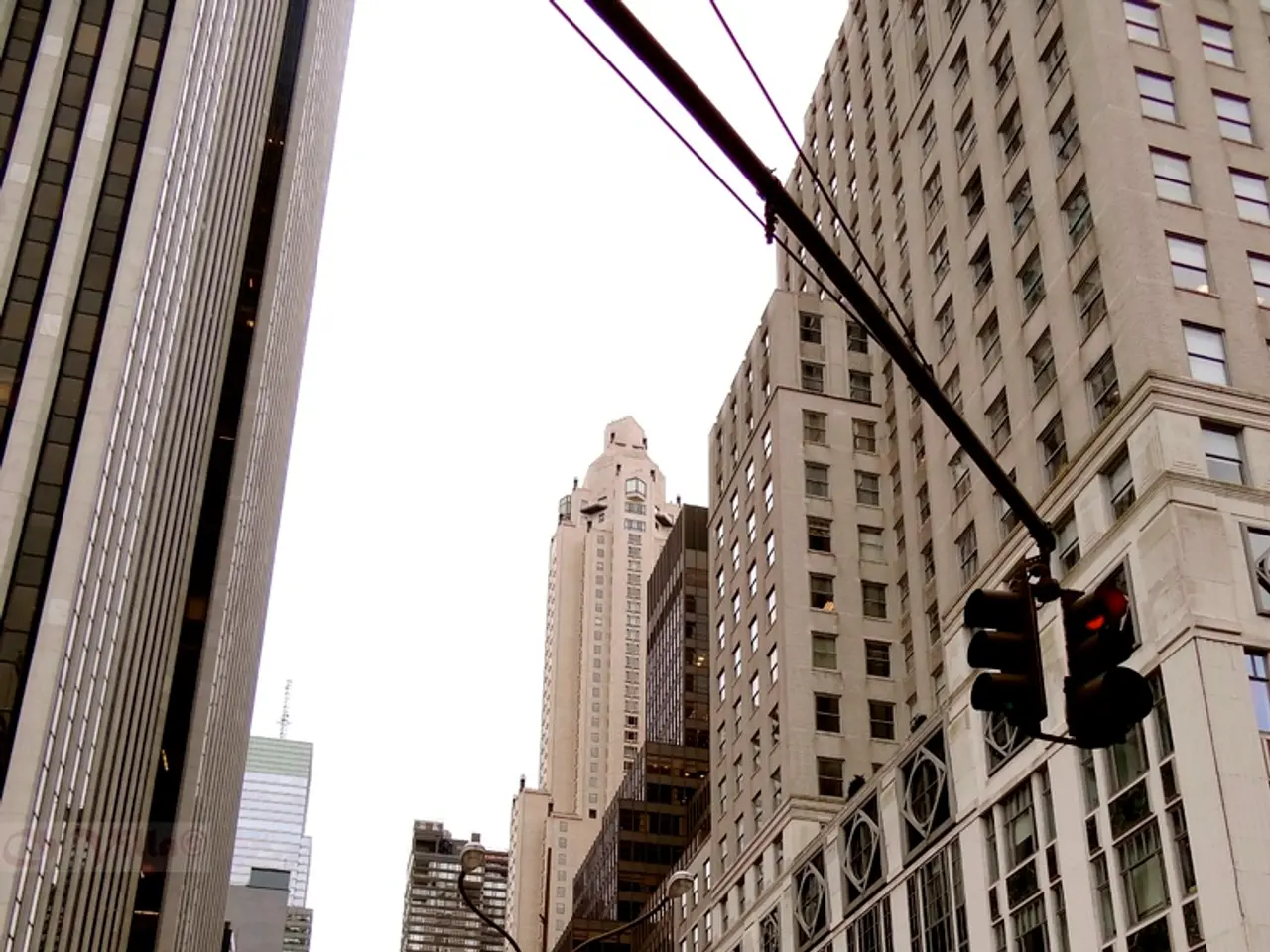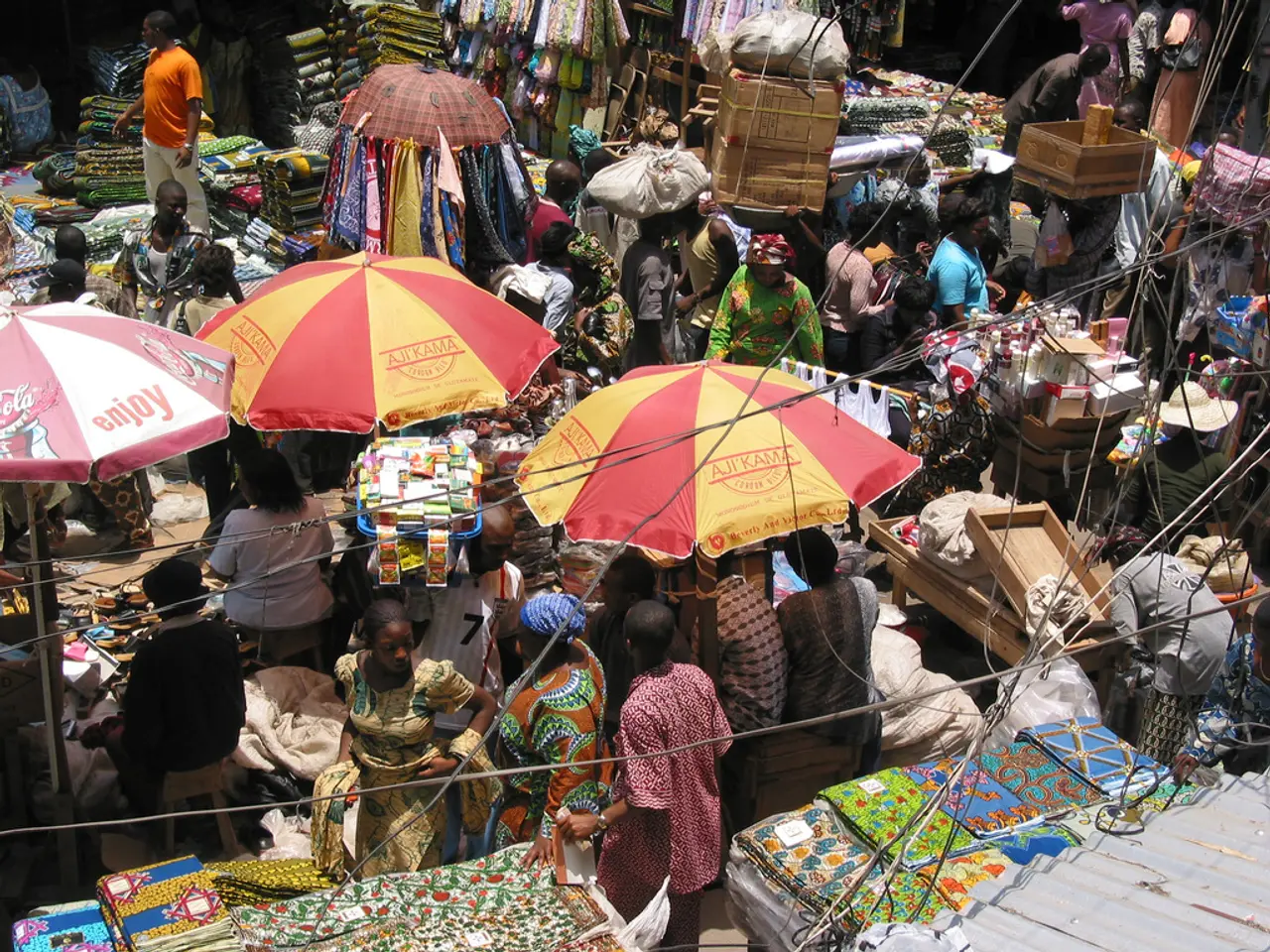Annually, Orange Spends €1 Billion on Linking Africa and the Middle East
**Orange Group Accelerates 5G Adoption and Broadband Expansion in Africa**
Orange Group, a leading telecommunications company, is making significant strides in expanding broadband infrastructure and promoting sustainable growth across Africa. The company's efforts, which align with its commitment to managing energy consumption and carbon footprint, are aimed at bridging the digital divide and fostering digital inclusion.
Orange's 5G initiatives in Africa are proceeding with active network launches starting from 2023-2025. In Morocco, Orange is part of the 5G landscape where the country is launching 5G commercially by November 2025, targeting 25% population coverage by end-2025 and 70% by 2030. In Senegal, Orange (via its Sonatel subsidiary) obtained a 5G license in July 2023, and the country’s rollout strategy incorporates both 5G network deployment and innovative regulatory approaches such as a national roaming plan.
The national roaming plan, initiated in April 2023, mandates operators like Orange to share network access in underserved rural areas to ensure broader mobile coverage, particularly to rural populations. This approach directly involves Orange’s infrastructure in filling rural connectivity gaps. Investments from Senegal's national Universal Service Fund also support telecom expansion in less-served areas, complementing Orange’s infrastructure efforts.
By the end of 2023, the number of fixed broadband customers in Africa had increased by 27% to reach 3.3 million. Orange plans to deploy an additional 15,000 rural sites over the next three years, with all new sites being 100% solar powered. The company aims for 50% of smartphone sales in the region to be 5G compatible by 2026.
Orange invests between €100 million and €200 million annually in vital pan-African infrastructure. The company's backbone networks, including the Djoliba terrestrial fiber network spanning up to 10,000 kilometers, have led to an almost seven-fold increase in Orange Middle East and Africa's international connectivity capacity over the past five years.
Orange Group is also investing over €1 billion annually into developing high-performance fixed and mobile networks. The company has established five "Orange 5G Labs" in key African and Middle Eastern markets, serving as innovation hubs for local partners to explore and test new 5G use cases. As of now, there are 2,000 rural sites already in place, and Orange is aggressively deploying 4G networks, aiming for an 85% average coverage by 2025.
Connectivity is highlighted as a crucial factor for socio-economic development in Africa. Fiber optics is a key growth driver for Orange in Africa, with a goal of bringing it to more households. Approximately 520 million people in Africa have mobile access, but many are still excluded from fixed broadband. Orange's approach to connecting the unconnected is multi-faceted and heavily focused on network expansion.
Orange's efforts in Africa and the Middle East involve a combination of network rollouts, policy-driven coverage expansions, and infrastructure investments, with a clear timeline focused on the mid-2020s. Although direct details on Middle Eastern rural connectivity projects by Orange were limited, the company's focus on North and West African projects suggests a strong emphasis in these regions at this time.
Technology plays a pivotal role in Orange Group's 5G initiatives and broadband expansion in Africa, as the company invests over €1 billion annually into developing high-performance fixed and mobile networks. Meanwhile, telecoms infrastructure in Africa is being strengthened through initiatives like the national roaming plan in Senegal, which mandates sharing network access in rural areas to ensure broader mobile coverage.




